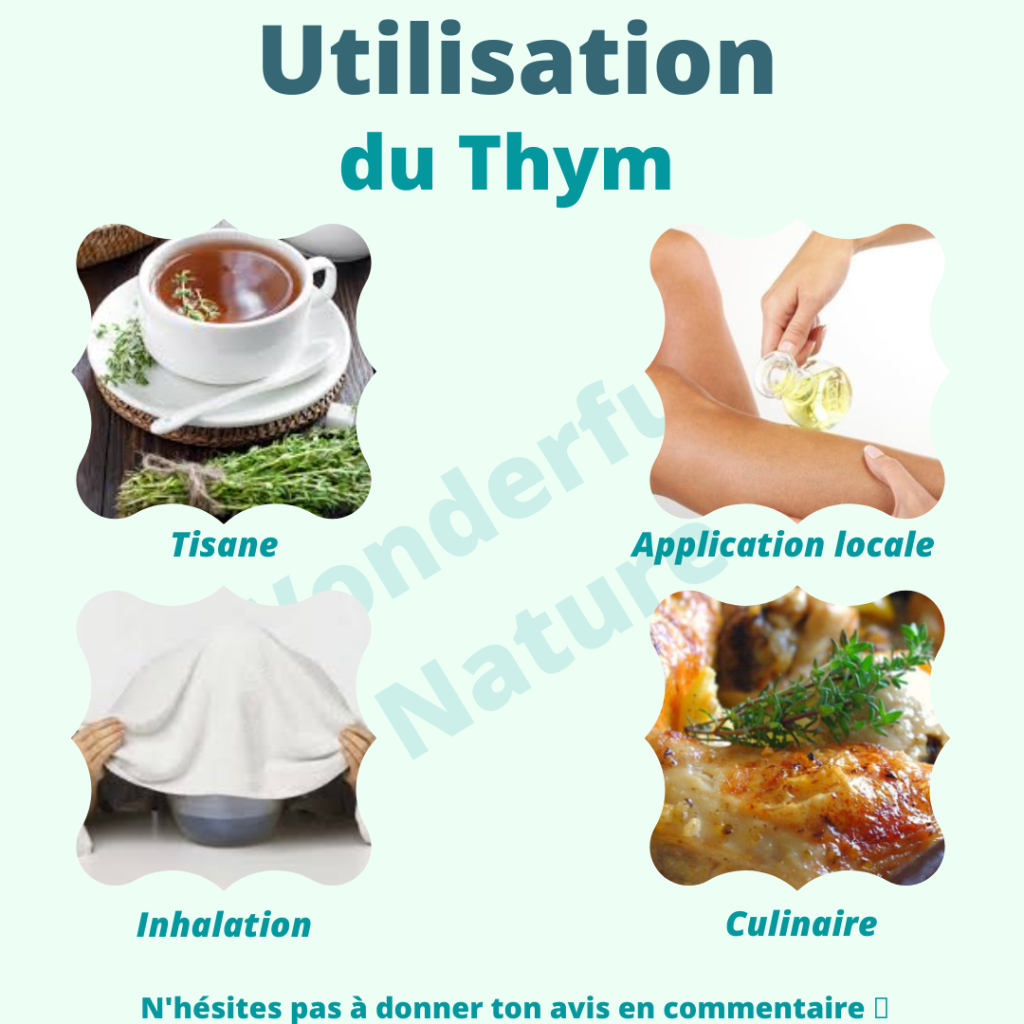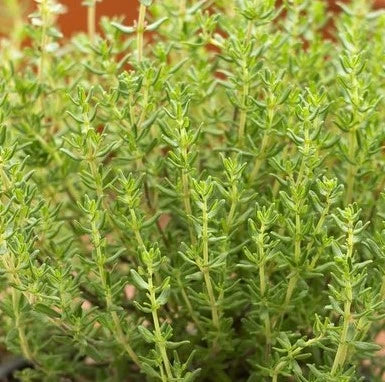Thyme is a plant widely used in the culinary world, in alternative medicine, in aromatherapy, etc.
It is recognized for its numerous benefits, particularly on winter illnesses.
There are 3 varieties of thyme essential oils:
- Thyme with thymol: very strong HE, it is mainly used orally and diluted, it is antiseptic, antibacterial and viral, it acts most on ENT infections
- Thyme with linalool : gentler EO, it is used particularly on canker sores, pimples, wounds. It is bactericidal and is used through the skin.
- Thyme with thyjanol : Expensive and rare, it is more used for pediatric uses
Benefits :
- Respiratory problems, antitussives : Effective on respiratory diseases such as asthma but also on winter infections such as bronchitis and coughs. Its expectorant function helps reject mucus present, clears the respiratory tract and soothes irritated throats.
- ENT problems: Acts against infections such as otitis, nasopharyngitis, colds and tonsillitis thanks to its antibacterial and antiviral action.
- Dermatological : Has antiviral and antimicrobial action against fungal infections, herpes, shingles
- Alzheimer's disease : The plant contains apigenin which protects and promotes the brain
- It is a powerful antiseptic : Rich in phenol. It helps relieve several oral problems such as cavities or as part of dental care.
- Rich in vitamin K : Participates in blood clotting
- Rich in iron : Participates in the formation of red blood cells
- Digestive problems : Reduces bloating, intestinal gas and diarrhea
Contraindication:
- Patient under anticoagulant treatment: A small quantity of thyme is needed because it is rich in vitamin K and participates in blood clotting. It is necessary to limit the intake of this vitamin in these patients
-
Allergy: Avoid essential oils in particular if you are sensitive to this family of plants
- Pregnant or breastfeeding women: Essential oils are not recommended for pregnant or breastfeeding women
- Patient under hypertensive treatment : Moderate use of thyme is required because it has a hypertensive effect and can cause dysregulation.

Thyme can be used in the form of herbal tea after a meal to help digestion, reduce inflammation and sore throat pain.
In local application, we prefer Thyme EO to linalool for a wound, shingles... Inhalation is very recommended during sinusitis, colds to unclog and rehydrate dry respiratory mucous membranes.
It is also very appreciated in cooking for its herbaceous taste in sauced dishes or meats.
As you can see, the power of thyme is very beneficial but it should not be overused. Always seek the advice of your doctor or pharmacist before use.
I hope that the functions of thyme no longer hold any secrets for you.
See you soon for a new article
Take care of yourself

